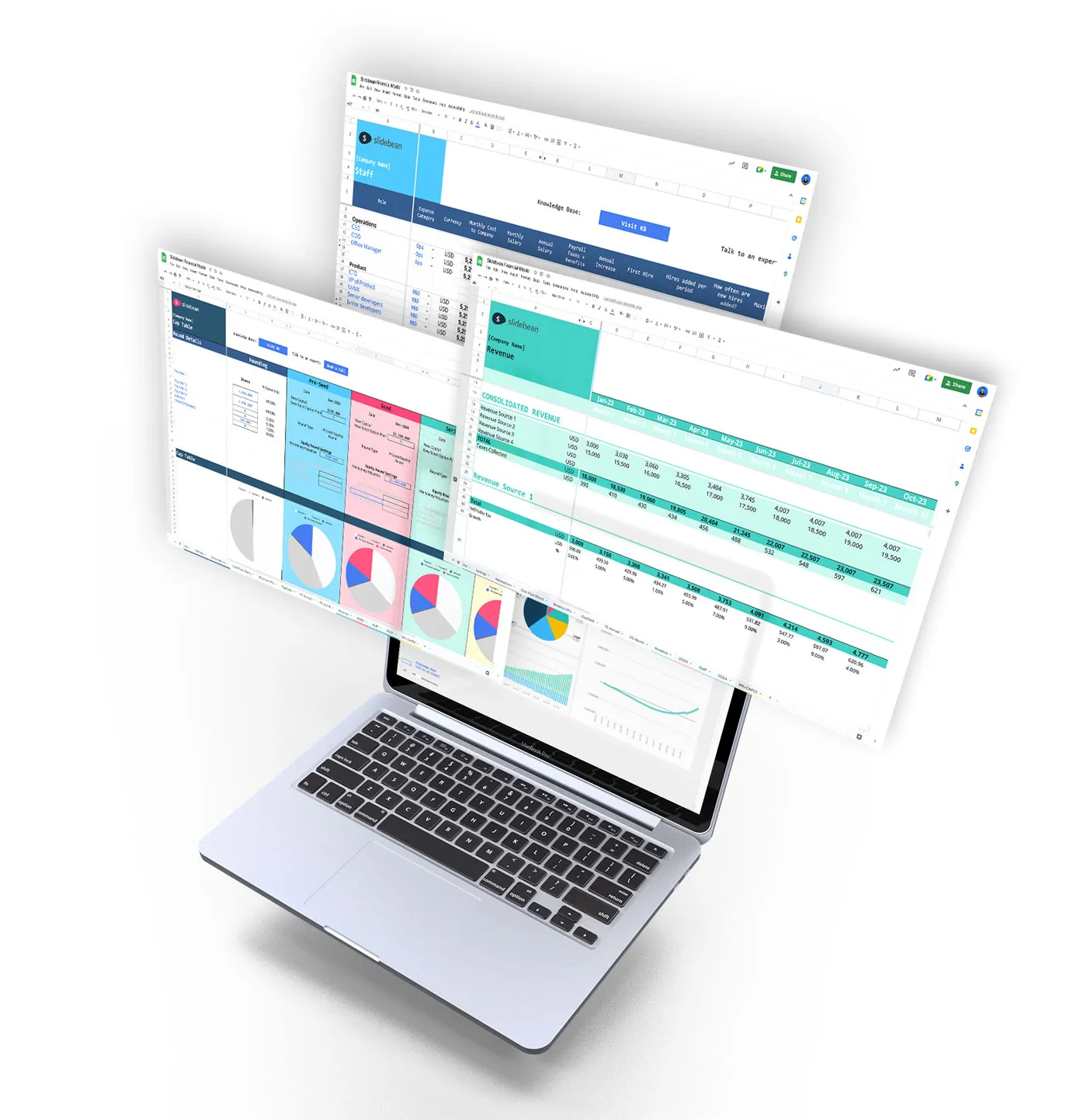What is a Pitch Book? Meaning and Examples

There are many tools available for startups and companies to present themselves effectively to potential investors. As a founder, understanding these tools and when to use them is key. One of the most detailed tools at your disposal is the pitch book. This can be instrumental in attracting investment from major players in the right context.
A pitch book is a comprehensive document detailing a company's business. It includes current and historical financial data, projections, assets, and company transactions. More importantly, a pitch book serves as a sales document, providing all the necessary information for potential buyers of a company.
Founders often prepare a pitch book from the most flattering and advantageous angle possible, which is , of course, a valid and understandable approach. Yet at the same time, investors and potential buyers are only interested in the cold hard facts. A pitch book, then, should include both strengths and weaknesses, presented in a positive light, along with strategies to address those weaknesses.
Understanding Pitch Books
To truly get how they work, it’s helpful to examine the different types of pitch books and their appropriate uses. These can be used in discussions with potential investors or when preparing to sell your company. Each type contains specific details that are essential to understand.
General Pitch Book
This document offers an overview of your company. It should include all relevant financial information such as profits, deals, key executives, company size, competition, and history.
Investors will also want to see a list of current and potential clients and the nature of your business relationships. While sharing your client list might seem risky, it is decisive information for investors. Don't forget to, include information about competitors and your company's performance relative to them.
A general pitch book should be prepared and maintained regularly, not just when approaching investors. Invest time in creating it and ensure it is detailed and accurate.
Deal Pitch Book
The Deal Pitch Book is tailored for specific deals or IPOs. Think of it as an enhanced version of the general pitch book, with more targeted information.
For instance, if you're preparing for an IPO, you'll need to demonstrate how the company and potential investors will benefit. Include comparables to show how similar companies have performed and who has invested in them.
The Deal Pitch Book should also outline potential buyers, projections, and valuations, along with a clear plan to achieve these goals. This document is crucial for buyers to understand your company, so clarity and detail are paramount.
What Is An Investment Banking Pitch Book?
As the name suggests, this type of pitch book is used by investment banks. When clients seek assistance with potential deals (such as selling shares or assets of a business, mergers, or acquisitions) they turn to investment banks to facilitate the process.
There are other names for these documents. You can find them also as Merger and Acquisition or Sell-side pitch books, or as a Confidential Information Memorandum. Since they're most often used with investment banks only, founders don't deal with these frequently. However, you will encounter them if you want to sell off a part of —or all— of your company.

Investment Banking Pitch Book vs. Startup Pitch Deck
An investment banking pitch book and a startup pitch deck serve distinct purposes and audiences, so it's useful to differentiate them and establish clear differences between them.
On one hand, an investment banking pitch book is a comprehensive document that provides detailed financial data, projections, assets, and company transactions, aimed at attracting clients for mergers, acquisitions, or sales.
Its main purpose is to detail the company's strengths, weaknesses, and future projections, offering extensive information useful for financial operations. It's mainly used by investment firms and only marginally related to the startup ecosystem.
In contrast, a startup pitch deck is a quick presentation designed to effectively communicate the essential aspects of a business to potential investors. It focuses on being brief and to the point, highlighting the business model, traction, and roadmap to persuade investors in a more streamlined manner.
In the startup context then, a pitch book is, essentially, a more comprehensive and in-depth version of a pitch deck. While it's uncommon for a startup to use one frequently, it can be a powerful pitching tool for the right companies pitching to the right investors.
How do you make a Pitch Book?
Now that we’ve covered the essentials of a pitch book, let’s discuss how to create one. Other tools, such as pitch decks, are also useful for approaching investors, private equity firms, VCs and other potential targets. Pitch decks are more concise and focus on the company's growth story, whereas pitch books are considerably more detailed and built around company analysis. It’s common to find the same information in both, but with varying levels of depth.
It typically includes your startup's vision, mission, company overview, and business model. In addition, it should cover:
- Liquidity analysis
- Operating forecast
- Shareholder ownership
- Competition and market position
- Sales team workflow
- Industry trends and market overview
- Corporate finances
- Share price performance (if applicable)
- Valuation overview and analysis
- Comparables
- Precedents
- Strengths and weaknesses, with recommendations for improvement
- Conditions for potential financial deals
Ensure that this information is clear and concise. Keep the document within 15 to 20 pages, as investors may not have time for lengthy reports. However, it must contain all the necessary details for thorough financial operations. Review the information carefully for accuracy and clarity.
If you want to know more about how to prepare a pitch book, we've designed an app that helps you sort everything out. It might be overwhelming, and we know we've helped thousands of startups develop the necessary documents to grow. So, with this app, you'll find everything you need to create a pitchbook.
Who Prepares a Pitch Book?
The preparation of a pitch book depends on its intended use. In the context of investment banking, senior bankers at typically create them to attract clients.
Things are more loose in the startup world, however. A general pitch book can be prepared by large companies or startups and is useful in various negotiations.
For a deal pitch book, the company seeking the deal usually prepares it, although investment banks may also provide relevant documents.
What is the difference between Pitchbook and a pitch deck?
This is a common question among startups. While the terms may seem interchangeable, they serve different purposes. A pitch deck is a concise set of slides used to approach potential investors, focusing on brevity. The information in a pitch deck is often also found in a pitch book but in greater detail.
A pitch book delves deep into every aspect of the company, including strengths, weaknesses, and future projections. Pitch decks, on the other hand, are more prevalent among startups, while investment bankers favor pitch books for their complexity and depth.
While it might initially seem overwhelming, creating a pitchbook isn't challenging. It also helps to have the right tools. Check out how Slidebean can help you build your pitch.







